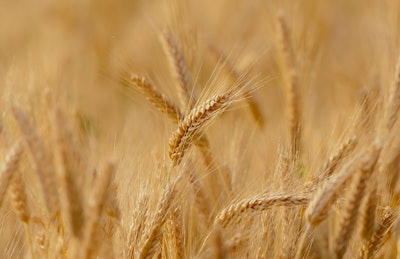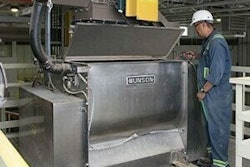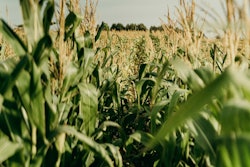
U.S. Spring Wheat Tour Highlights: Day 1
The tour kicked off in southern and east central North Dakota.
Scouts noted that yields were well below average thanks to the ongoing drought that part of the US is facing.
From 100 fields on day 1, the average yield came in at 29.5 bushels per acre versus the 2019 yield at 45.6 and the average at 43.3.
Conditions for the US overall are the poorest since the 1988 crop.
On Wednesday, the tour extends into northern areas and on Thursday the tour expands to northeastern fields.
The Wheat Quality Council will release a state yield forecast Thursday.
FBN’s Take On What It Means: The tour found generally what was expected - poor fields and yields that are well below average. With harvest in early stages, rainfall now would not be viewed as helpful to the crop. We are expecting a poor spring wheat crop overall for the US and Canada. Minneapolis futures are expected to rebound from recent weakness.

EU Crop Report
The EU crop monitor, MARS, reported that, although excessive rainfall hampered the harvest of winter crops, it had limited impact on yields.
There was some concern that too-wet conditions in some regions could reduce yield quality.
The agency raised its forecast of the average EU soft wheat yield to 6.05 tonnes per hectare from 6.01 tonnes in June.
That would be 6.3% above the average EU soft wheat yield of the past five years, and 6.1% above last year.
MARS raised the projected EU corn yield to 7.88 tonnes per hectare from 7.84 tonnes last month, up 1.7% on the average.
The barley yield was reduced slightly to 4.96 tonnes per hectare from the 4.97 tonnes projected in June, which is still 4% above average.
The forecast for rapeseed yield was cut to 3.19 tonnes per hectare from 3.23 tonnes last month, still 4.8% above the five-year average.
FBN’s Take On What It Means: Record rainfall in several western European countries this month caused deadly floods and raised concern over damage to crops, but for now it appears quality issues are a greater worry. Quality may become more of a problem as world stocks of milling quality wheat become tighter due to production cuts for spring wheat in the US northern Plains and Canadian Prairies.
FBN Market Advisory services are offered by FBN BR LLC, dba FBN Brokerage, FBN BR and FBN Market Advisory (NFA ID: 0508695)
The risk of trading futures and options can be substantial and may not be suitable for all investors. Past performance is not necessarily indicative of future results.
This is not an offer or solicitation in any jurisdiction where we are not authorized to do business or where such offer or solicitation would be contrary to the local laws and regulations of that jurisdiction, including, but not limited to, persons residing in Australia and Canada.










